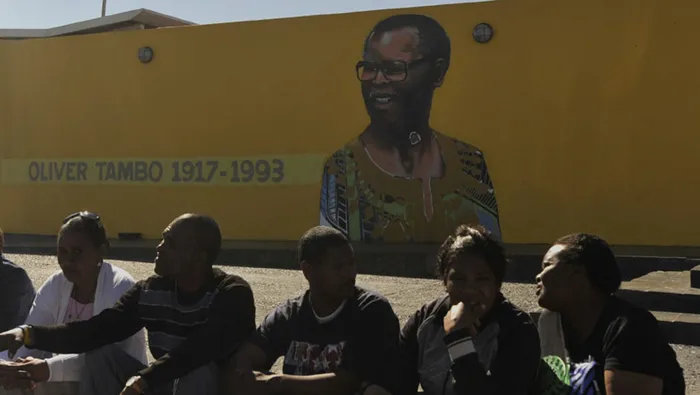Micro-franchising SA’s way out of unemployment crisis

Cpe Town 110906. The Western Cape mobilised backyarders from Delft, Gugulethu, Mandela Park, Mitchell's Plain and Khayelitsha was to attend the meeting that Mayor Patricia de Lille had scheduled with backyarders in Khayelitsha O.R Tambo Hall. People were excited about the opportunity to engage with the Mayor and to have their voices heard.But when the City heard that Abahlali baseMjondolo were coming they cancelled the meeting. Picture Mxolisi madela/ Cpe Town 110906. The Western Cape mobilised backyarders from Delft, Gugulethu, Mandela Park, Mitchell's Plain and Khayelitsha was to attend the meeting that Mayor Patricia de Lille had scheduled with backyarders in Khayelitsha O.R Tambo Hall. People were excited about the opportunity to engage with the Mayor and to have their voices heard.But when the City heard that Abahlali baseMjondolo were coming they cancelled the meeting. Picture Mxolisi madela/
Micro-franchising offers a particularly South African way of dealing with the country’s enormous employment problems. It implicitly acknowledges the overwhelming challenges facing the country and suggests a solution based on what is available.
The well-known economic facts shaping the micro-franchise landscape include the following: at most 20 percent of people are entrepreneurs, the majority of us just want a job; small, medium and micro enterprises (SMMEs) account for more than 40 percent of gross domestic product and more than 50 percent of employment; South Africa has one of the highest failure rates of SMMEs in the world due to the lack of basic business skills, a tendency to copy successful ideas and lack of access to markets; 85 percent of franchise businesses are still in operation five years later, compared with just 15 percent of start-ups.
However, the difficulty with a traditional franchise is that it can cost up to R5 million, which puts it out of the reach of the majority of South Africans.
Finally, there is the generally accepted fact that there is no shortage of money in the country, but there is a crippling inability to allocate money to untested micro enterprises.
Canadian Martha Deacon, the founder and chief executive of the Townships Project, put all of this together and came up with what seems like the remarkably obvious solution – franchising on a micro level at a cost of anything between R10 000 and R136 000 per franchise. This compares with a figure of about R250 000 per job that is used by the Department of Trade and Industry (dti).
Deacon explains that the franchise model will allow a proven successful business idea to be replicated in a manner that ensures the transfer of necessary skills.
“Buying a franchise is like buying a job,” says Deacon, adding that using an established business, which would provide the appropriate systems, significantly reduces the risk of making mistakes. “If you’re big and rich you don’t die if you make a mistake, if you’re small and poor you do.”
Last month Khayelitsha hosted the world’s first ever micro-franchise conference. It was organised by the Townships Project and UCT Graduate School of Business and brought together 15 small businesses with potential funders in the form of microfinance institutions, the government, corporate social investment departments and banks. Community representatives countrywide also attended.
At this stage the biggest challenge for the project is to identify the sorts of businesses that are appropriate for franchising on a micro scale.
Deacon refers to four requirements: the business must be profitable, it must have branding and it must be easily and reliably replicable.
She acknowledges that many of the small businesses that were represented at the conference would not make it through the vigorous vetting process and cautions that the potential franchisees will face a lot of work.
“Our plan is to select 40 businesses a year, which will be workshopped and from which we expect that about 10 could be micro-franchised.”
Tumelo Chipfupa, a deputy director-general at the dti, who attended the conference, says a major attraction of the micro-franchise model is that it addresses the three biggest problems facing new small businesses – access to a successful business idea, access to business skills and access to funding. He says banks are more prepared to lend to proven ventures. – Ann Crotty